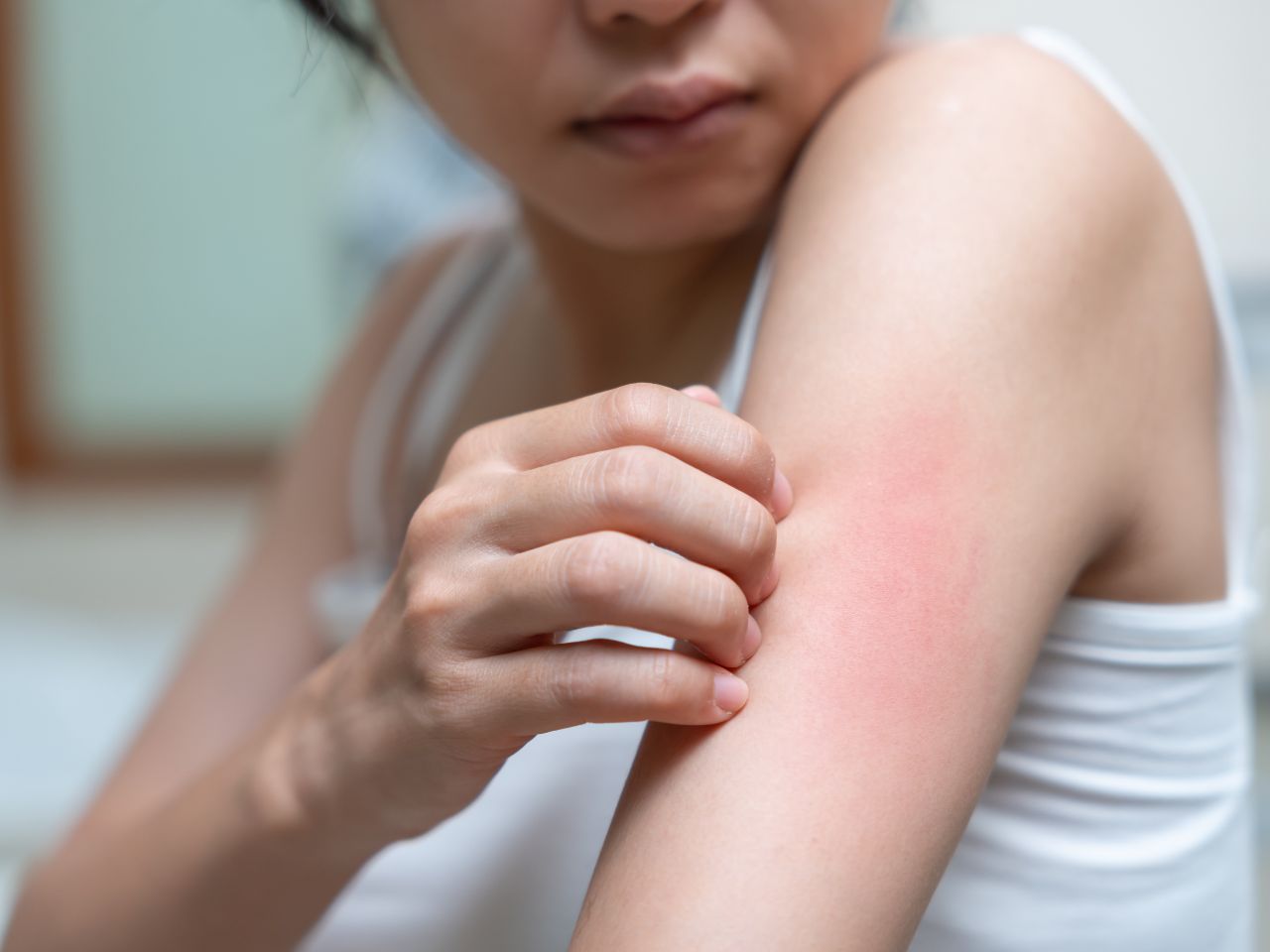Say Goodbye to Itchy, Irritated Skin: Understanding Psoriasis, Eczema & Chronic Itching
- Home
- Say Goodbye to Itchy, Irritated Skin: Understanding Psoriasis, Eczema & Chronic Itching
Skin that constantly itches, flakes, or forms red patches can take a toll on your comfort, appearance, and confidence. Psoriasis, eczema, and chronic itching (pruritus) are common yet distressing skin conditions that affect people of all ages.
Let’s explore their causes, symptoms, and the most effective treatments to restore your skin health—and peace of mind.
What Are Psoriasis, Eczema, and Itching?
Psoriasis is a chronic autoimmune skin disease where the skin cells multiply too quickly, leading to thick, scaly patches—often on the elbows, knees, scalp, and back.
Common Symptoms:
- Red patches with silvery-white scales.
- Itching or burning sensation.
- Dry, cracked skin that may bleed
- Flare-ups triggered by stress, weather, or infections
- Eczema (Atopic Dermatitis)
Eczema is an inflammatory skin condition that causes dry, itchy, and red skin, especially in children but also adults.
Common Symptoms:
- Intense itching, especially at night.
- Dry, sensitive skin
- Red or brownish-gray patches.
- Oozing or crusting in severe cases
- Chronic Itching (Pruritus)
- Sometimes, itching occurs without visible rash, or it may accompany dry skin or internal health conditions. Chronic itching can interfere with sleep and daily activities.
Common Causes:
- Dry skin (xerosis)
- Allergies or irritants
- Fungal infections
- Kidney, liver, or thyroid issues
- Nerve-related conditions
What's the Difference Between Eczema and Psoriasis?
- Feature Eczema Psoriasis itching Very intense Mild to moderate.
- Skin Texture Red, inflamed, oozing patches Thick, raised, scaly plaques.
- Age of Onset Often in early childhood Common in adults Triggers Allergens, weather, stress Stress, infections, weather.

Diagnosis & Testing:
At Subam Clinic, , we diagnose skin conditions through:
- Clinical examination
- Skin biopsy (if needed)
- Allergy tests
- Blood tests for autoimmune conditions.
- Early diagnosis leads to faster relief and better management.
- Effective Treatment Options
For Psoriasis:
- Topical creams (corticosteroids, vitamin D analogues)
- Phototherapy (UVB light)
- Oral or injectable biologics for severe cases.
- Lifestyle management (stress reduction, skincare routine)
For Eczema:
- Moisturizers and emollients.
- Anti-inflammatory creams.
- Antihistamines for itch relief.
- Allergen avoidance and skin barrier protection
2. For Itching (Pruritus):
- Treat underlying cause (e.g., infection, dryness).
- Soothing creams or lotions.
- Antihistamines or oral medications
- Medicated shampoos or antifungals (for scalp itch)
- Don’t Scratch! Here’s Why It Makes It Worse
Scratching may offer momentary relief, but it:
- Worsens inflammation
- Breaks skin, increasing infection risk
- Leads to thickened skin (lichenification)
- Instead, try cold compresses, gentle moisturizers, or medicated creams prescribed by your dermatologist.
Home Care Tips to Soothe Your Skin
Use fragrance-free, mild soaps
- Apply moisturizer within 3 minutes of bathing
- Avoid hot water—prefer lukewarm baths
- Wear cotton clothes; avoid wool or synthetic fibers
- Stay hydrated and manage stress
When to See a Dermatologist
Don’t ignore symptoms like:
- Persistent or spreading rashes
- Severe itching disrupting sleep
- Cracked or bleeding skin
- Skin infections
Our expert dermatologists at Subam Skin Clinic can help you get lasting relief with personalized treatments.
Why Choose Subam Skin Clinic for Psoriasis & Eczema Treatment?
- Specialized dermatologists with years of experience
- Advanced treatments like phototherapy & biologics
- Safe care for all ages, including children
- Customized plans based on skin type and severity
- Compassionate support throughout your healing journey
FAQs
No. Eczema is not contagious and cannot spread from person to person.
Psoriasis is chronic but can be well-controlled with proper medical care.
Common triggers include stress, weather changes, allergens, and irritants like soaps or fabrics.
Conclusion
Stop living with discomfort. Let us help you heal and feel confident in your skin again.
